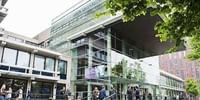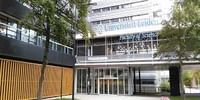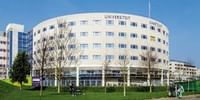The ?programme offered by??stems from the former Economic Geography and Urban Geography programmes. You can specialise in one of the two fields by choosing a track:
- Urban Geography:?Neighbourhoods &?Residential Dynamics
- Urban Geography: Daily Life & Public Spaces
- Economic Geography:?Business & Location
- Economic Geography:?Regional Development & Policy
Urban regions are bubbling, dynamic places where people get together and generate new ideas. They are breeding grounds for innovation and economic growth. Many people still move to the city, chasing their dreams: for a challenging career, a pleasant living environment, all the amenities within easy reach. And besides the local residents, large numbers of tourists visit the city seeking an entertaining stay.
The continuous urban growth in an increasingly global economy has both winners and losers. On the one hand, there are start-ups that expand to become large companies. While on the other hand, there are traditional companies that succumb to global competition. How can we explain success and failure?
Urban growth also leads to a great diversity of people and lifestyles, which ensure thriving communities. Yet there are also places where spatial and social inequalities reveal themselves between communities. This results in unpleasant living environments and neighbourhoods in decline. How do you breathe new life into those communities?
Careers
The two former Master?s programmes in Urban Geography and Economic Geography showed that there is a big job market for graduates. Human geographers can be found in numerous public and private organisations in the field of urban and economic development. Positions held include consultants, advisors or researchers, who work on specific social or economic issues.
The programme has an extensive alumni network, which is also involved in teaching. Through guest lectures and practical assignments, you will learn what graduates do and be able to determine where you would be most at home.
For example, in the short course on Professional Competences (with options) you will learn how to make your research results accessible to a wider audience, how to draw up a policy report, or how to deal with opposing political or other interests in practice.














